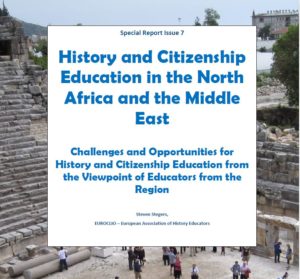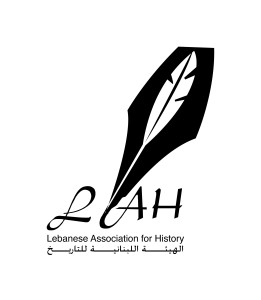Project Description
The project consisted of a week-long professional development course for 30 history and citizenship educators from Egypt, Jordan, Lebanon, Morocco, Palestine and Tunisia coordinated by EuroClio, in partnership with the Lebanese Association for History. This event built the capacities of participants to teach innovative and responsible history education with a focus on developing historical and critical thinking skills amongst students. This transnational capacity-building course fostered long-term cross-border communication and cooperation in the region and offered opportunities to share and compare practices with colleagues from Europe. Coinciding with this course, there was a stakeholders meeting with official representatives of intergovernmental and non-governmental organisations on future steps for regional cooperation on history education. The project brought together a group of education practitioners who critically reflected on the current challenges, opportunities and good practices in history education in their respective countries. At the same time they came to realize that they face many similar or even common challenges and opportunities and they showed a strong willingness to work on these on a regional level. The trainings on methodological innovation were a unique and important opportunity for all as it reinforced their willingness to use innovative and learner-centered approaches in their teaching practice. The project also reinforced the professionalism of the newly created Lebanese Association for History and empower history education professionals in other countries of the region to activate and extend similar networks.
Project Aims
[su_list icon=”icon: caret-right”]
The overall objective was to support the sustainable development of high-quality history education in Egypt, Jordan, Lebanon, Morocco, Palestine and Tunisia through capacity building, stakeholders involvement and training on methodological innovation.
Specific aims:
Professional Development
- Reinforced willingness and confidence of a core group of history educators to use innovative practices based on learner-centered approaches
- Acquisition of methodological tools by a core group of history educators to better integrate historical knowledge and conceptual understanding in their teaching practice
Civil Society Strengthening
- Commitment of all project participants to explore possibilities to set up a history educators’ network in their respective countries
- Hands-on knowledge on the principles and tools for good management and governance
Cross-border Cooperation
- Increased awareness of the situation of history education in neighbouring countries and of existing initiatives and resources possibly adaptable or extendable to other countries
- Establishment of regular communication and collaboration between history educators in the region, including through exchange visits, etc.
- Collaborative development and dissemination of an exemplar history lesson based on recommendations from the Guidebook for History Textbooks Authors “On a Common Path”
Results
[su_list icon=”icon: caret-right”]
- Professional Development of 25 history educators
- Contribution to the advancement of educational innovation in the MENA region and ultimately to the acquisition of skills for life and employability by youngsters
- Professionalisation and internationalisation of the Lebanese History Teachers’ Association.
- Empowerment of an increasing group of history and heritage educators from the MENA region to commit to long-term cross-border cooperation
- Improved dialogue between civil society actors, policymakers, researchers and practitioners in the field on national and cross-national level.
Project Managers
Steven Stegers, EuroClio Programme Director
Judith Geerling, EuroClio Project Manager
Blandine Smilansky, EuroClio Educational Staff
Contributors
Maha Shuayb (LAH)
Nayla Hamadeh (LAH)



